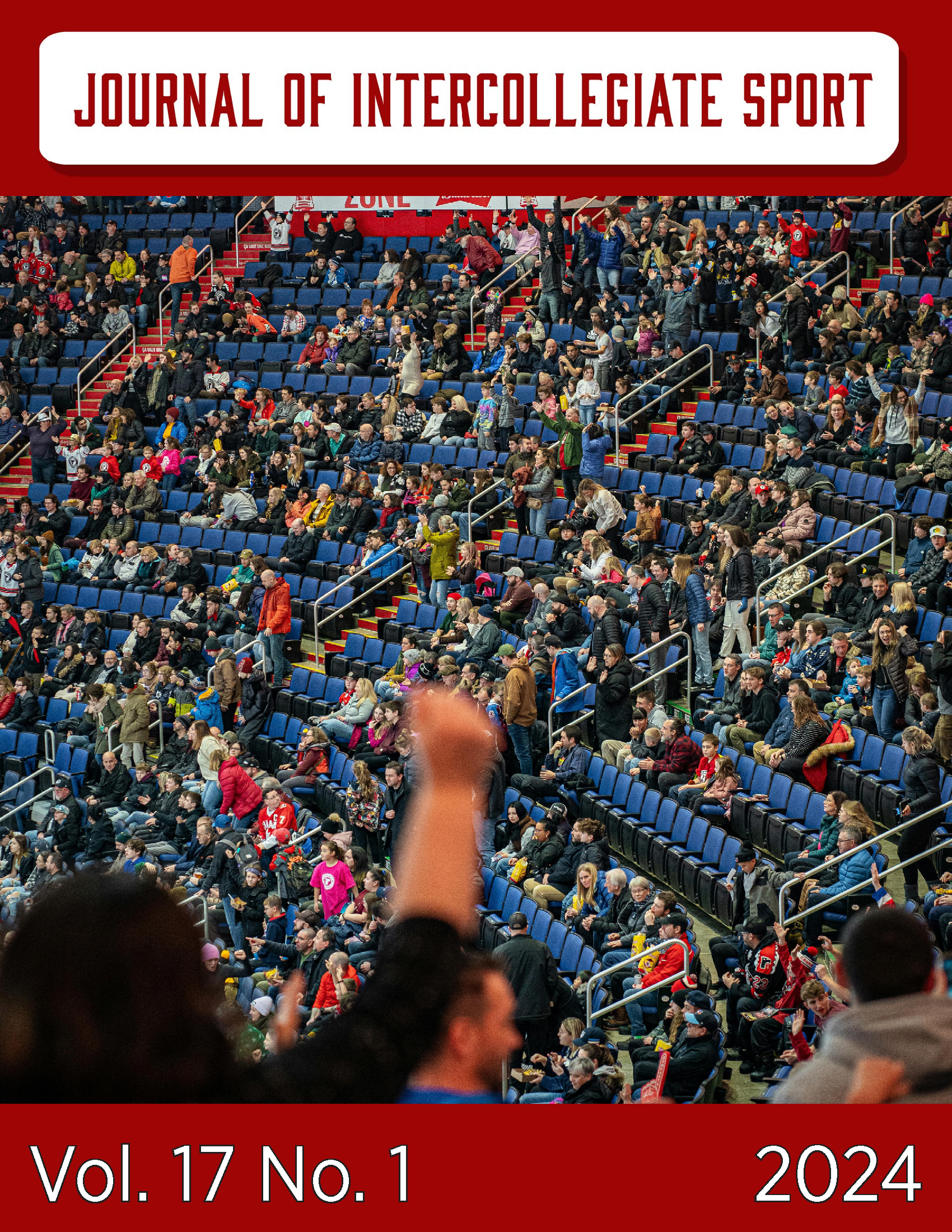Reframing the Service Environment in Collegiate Sport: A Transformative Sport Service Research Approach
DOI:
https://doi.org/10.17161/jis.v17i1.19739Keywords:
sport system, student-athletes, wellness, development, eudaimonismAbstract
This study applies a transformative sport service research approach to examine student-athletes’ wellness within a collegiate sport setting. Sixteen semi-structured interviews were completed during the COVID-19 pandemic and the stop of play in Canada (early 2021). Findings denoted wellness was influenced by this time period as well as organizational factors which are within the purview of existing management practices. The study details the service environment to understand physical and mental well-being while taking into consideration the general and organizational environments which influence the student-athletes. Findings demonstrate that eudaimonic-related experiences (e.g., learning, development, relationship) are related to student-athletes' mental well-being. This research underpins the role of education, policies, and communication, which draws several implications for the service environment in a collegiate sport setting and the key stakeholders involved in producing an environment to enhance student-athletes’ experience. The paper elaborates on the importance of the service environment and provides evidence of what student-athletes suggest management can change and focus their efforts on towards creating a transformative service environment. Theoretical implications for the transformative service research are put forward, including the co-creative aspects to determine programming which could contribute towards student-athletes wellness. Broader suggestions for change within the sport system and future research are also advanced.
Downloads
Downloads
Published
Issue
Section
License
Copyright (c) 2024 YIQI YANG, Erika Gray, Keita Kinoshita, Eric MacIntosh

This work is licensed under a Creative Commons Attribution-NonCommercial-NoDerivatives 4.0 International License.
Copyright is held by the authors.


